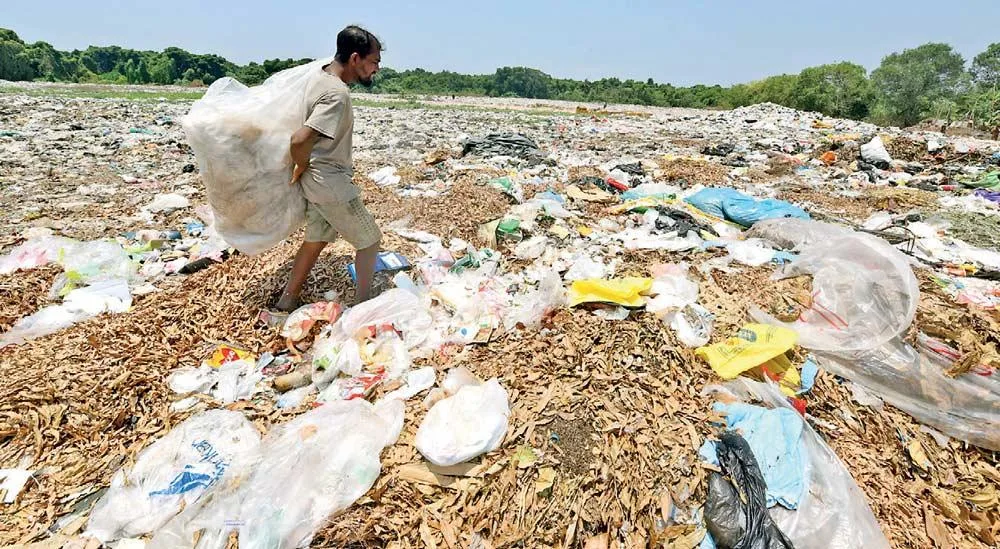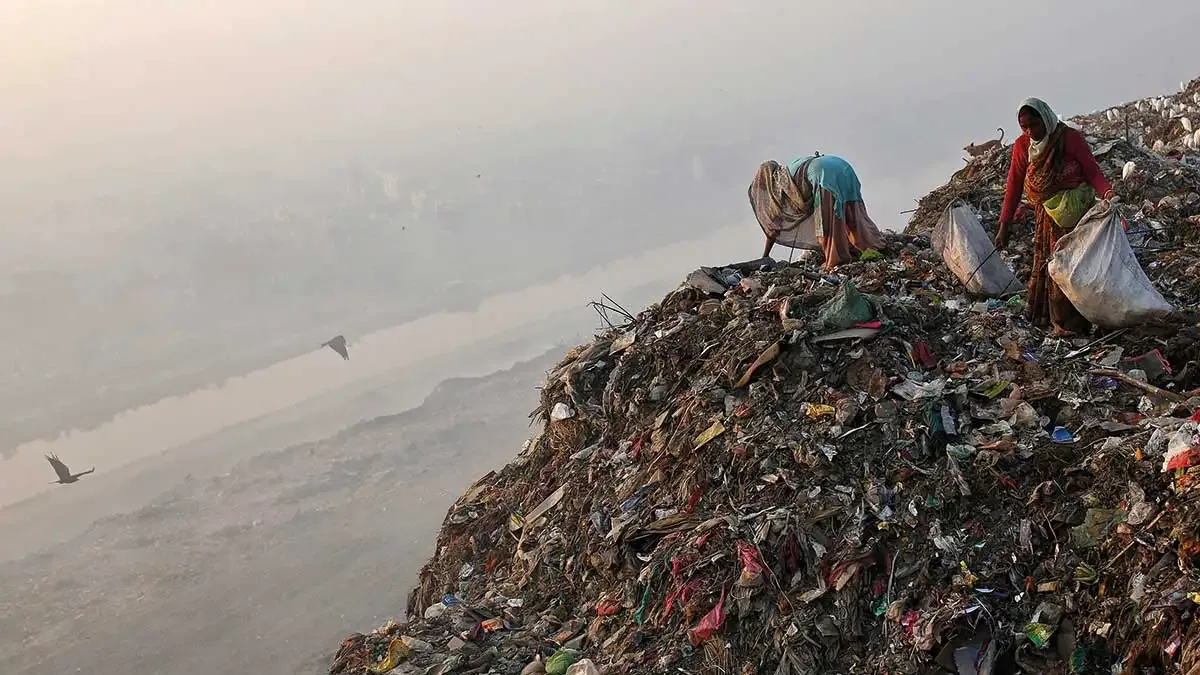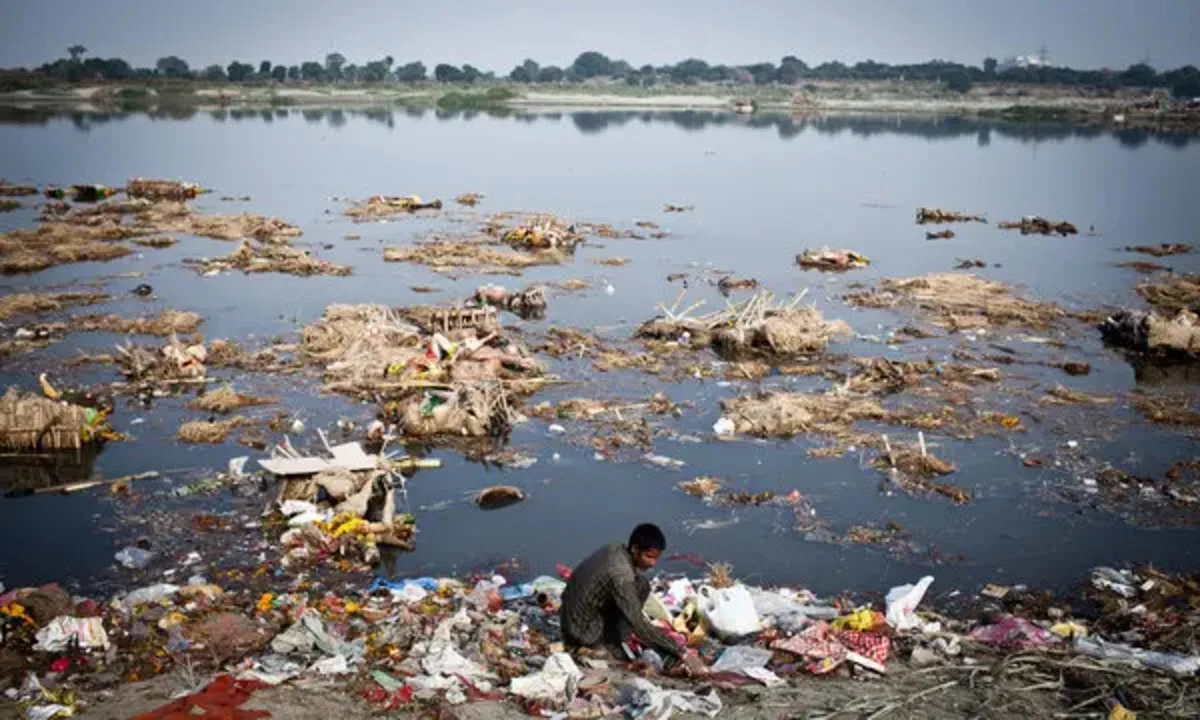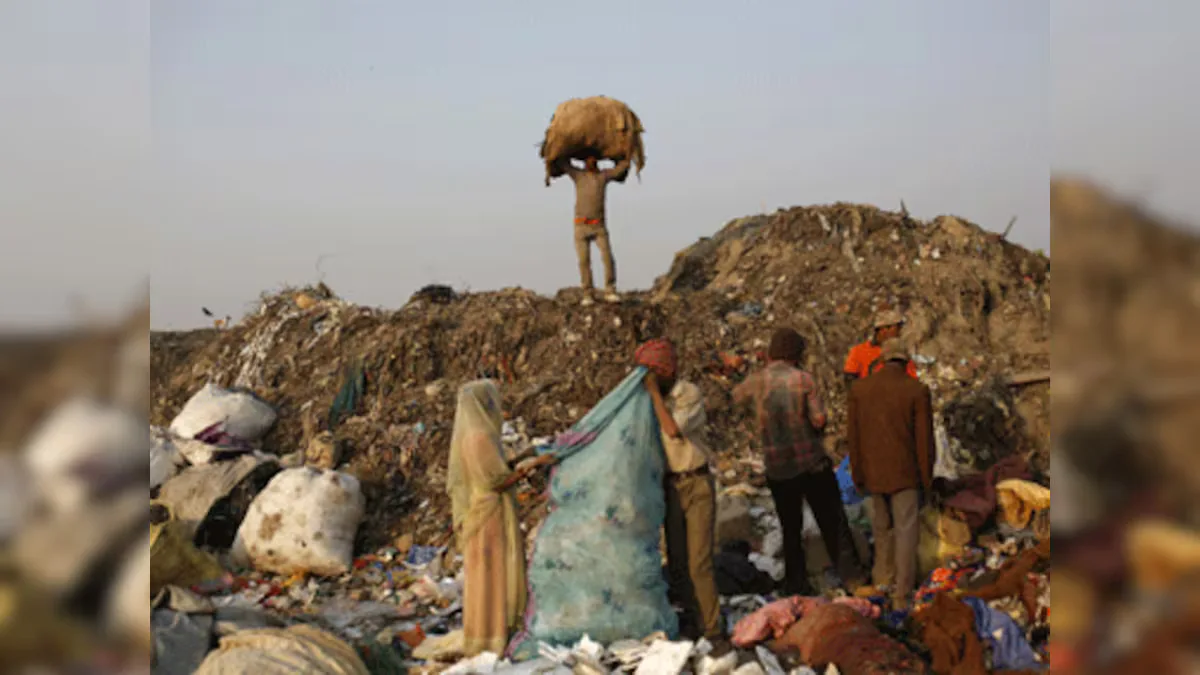Litter is not just malodorous but unsightly too!
Filthy, Filthy Everywhere! Every day, I step out of my house and walk into a street or road that seems to have forgotten what cleanliness means. The streets are always crowded, not just with people, but with chaos. So much noise, dust, smoke, honking cars, and people brushing past each other like it’s the most natural thing in the world. It’s a jungle made of concrete and carelessness, and yet, everyone around me seems to accept it as normal.

The atmosphere is bitterly filthy. There is garbage lying on the streets, open drains that stink even from a distance, and flies buzzing around like they own the place. I pass by street food stalls where people are gathered in large numbers, enjoying snacks and sipping tea. The tea is hot, the samosas are crisp, but right beside the stall, there is a pile of trash, half-eaten food, and disposable plates thrown around. No one seems to mind, they are okay with it or maybe accept this shit! and Filthiness. The shopkeepers go on with their day, and the customers continue to eat, as if filth is just another part of the menu.
The area is congested beyond belief. Buildings are squeezed together like they’re afraid of being left out. There’s hardly any space to walk, let alone breathe. Car parking is a nightmare, people leave their vehicles wherever they find an inch of space, blocking footpaths and even other cars. I’ve often seen arguments break out over parking, but no one ever thinks about the real issue: why isn’t there a proper system? The dust in the air is unbearable. Sometimes, it feels like I’m breathing in sand. My eyes itch, my throat gets dry, and still, I see people going about their business like nothing’s wrong. Children play near garbage dumps, elderly people sit by the roadside wiping sweat off their brows, and shopkeepers fan themselves in the sweltering heat while flies dance over their goods.
I’ve often asked myself: how are we surviving this? More importantly, why are we okay with this? Why are we not demanding better surroundings? Why are we not raising our voices? Some people genuinely suffer in this environment. They fall sick often, especially those with breathing issues or weak immune systems. There are families who can’t afford clean drinking water, and children who grow up thinking this is what life is supposed to be like. They don’t know what it’s like to walk on a clean road or to sit in a park that smells of flowers instead of urine and garbage.

Then there are others who just don’t care. Maybe they’ve become numb to the dirt, or maybe they’ve given up hope that anything can change. When I talk to people about the condition of our surroundings, most of them shrug it off. “This is just how it is,” they say. Some even laugh, as if caring about cleanliness is a luxury. It frustrates me to no end. I don’t expect perfection, but is it too much to ask for a clean street? For a dustbin that actually gets used? For people to stop spitting on walls and throwing garbage from their cars? I try to do my part. I carry my own water bottle, avoid littering, and use public transport when I can. But sometimes, it feels like a drop in a polluted ocean. My small efforts feel invisible in the face of such massive neglect.
What panicky me most all the time is the dangerous, accepting silence. We have learned to live with dirt, pollution, and chaos, and that’s the biggest problem. Change begins when we start talking about the problem, when we question why things are the way they are, and when we decide we deserve better. I often imagine a different version of this place, a cleaner, more organised version. Where there are bins on every corner, and people actually use them. Where street food is served next to clean surroundings, not garbage heaps. Where cars are parked in proper spaces, and the air doesn’t carry the weight of dust and pollution.
But my imagination alone isn’t enough. We all need to take action. We need awareness. We need responsibility, not just from the government or local authorities, but from every individual. Because cleanliness isn’t just about hygiene; it’s about dignity. It’s about respecting the space we live in and the people we share it with. Every time I step out, I’m overwhelmed by the filthy atmosphere around me. Beggars sit on almost every street corner and food stall, some of them roaming about aimlessly, their hands stretched out, their clothes tattered and unwashed. The situation is heartbreaking, yet at the same time, it adds to the growing mess on the roads.
Leftover food, torn wrappers, and the constant movement of people in such poor conditions make the surroundings feel even more unhygienic. It’s hard to ignore the stench, the flies buzzing around, and the sheer neglect that’s turning our streets into garbage dumps. I’m tired of breathing in dirt and walking through filth. I’m tired of pretending that everything is fine when it clearly isn’t. And I know I’m not the only one who feels this way. If we all took a moment to care, to notice, and to speak up, maybe things would change. Maybe one day, I’ll walk out of my house and see a city that reflects pride instead of neglect. Because we deserve better.

I still remember there was a time when the mornings were so pleasant and began with the soft, melodic chirping of birds nestled in lush green canopies. The air was crisp. But that time now feels like a fading memory. Today, everything vanishes rapidly, sacrificed for towering buildings and sprawling factories. With each passing day, the air grows heavier, the skies darker, and the atmosphere more suffocating, tainted by the weight of our own neglect.
When I reflect on why so many government initiatives in India fail, I can’t help but notice how deeply the lack of civic sense among us citizens plays a vital role. Time and again, the government launches ambitious schemes-whether it’s Swachh Bharat Abhiyan for cleanliness, or campaigns for traffic discipline and public hygiene. Yet, the results rarely match the vision. The truth is, no matter how well-designed a policy is, it cannot succeed if we, the people, refuse to change our everyday behaviour.
I see this disconnect everywhere: people spitting paan or gutka on walls, throwing garbage on the streets even when dustbins are nearby, or jumping queues with a sense of entitlement. It’s not just a problem of the poor or uneducated; this disregard for public space cuts across class, region, and background. We often complain about dirty streets and inefficient services, but rarely do we accept responsibility for our own actions. The government can build toilets, but if we don’t use them properly, or treat public property as our own, the infrastructure quickly deteriorates.

The main problem is that civic sense isn’t emphasised in our upbringing. Schools focus on grades, not on manners or social responsibility. At home, parents may themselves flout rules and pass on the same attitude to their children. There’s a common mindset that public space belongs to no one, so it doesn’t matter how we treat it. “Chalta hai” becomes our excuse for everything-from littering to breaking traffic rules.
Government initiatives also suffer from poor enforcement and lack of awareness. Even when rules exist, the absence of consequences means people feel free to ignore them. Awareness campaigns often don’t reach the grassroots, and without community involvement, lasting change is hard to achieve. The sad part is, we expect the government to do everything, but we rarely do our part. We complain about dirty roads, poor maintenance, and lawlessness, but we forget that governance is not a one-way street. I’ve come to understand that civic sense isn’t about grand gestures, it’s about everyday actions. Not spitting in public, not throwing garbage, following traffic laws, respecting queues, conserving resources, all these make a huge difference.
If we, the citizens, don’t care enough to support these initiatives, how can we expect them to succeed? Ultimately, civic sense can’t be legislated or imposed from above-it must be cultivated through education, social pressure, and a sense of pride in our shared spaces. Until we, as citizens, start respecting public property and each other, government schemes will continue to struggle. Real progress depends not just on policies, but on the everyday choices each of us makes when no one is watching. We need to rethink about it till we don’t wake up with endless unawareness of our own responsibilities for our own streets, parks, roads and the path we choose when we go out.


